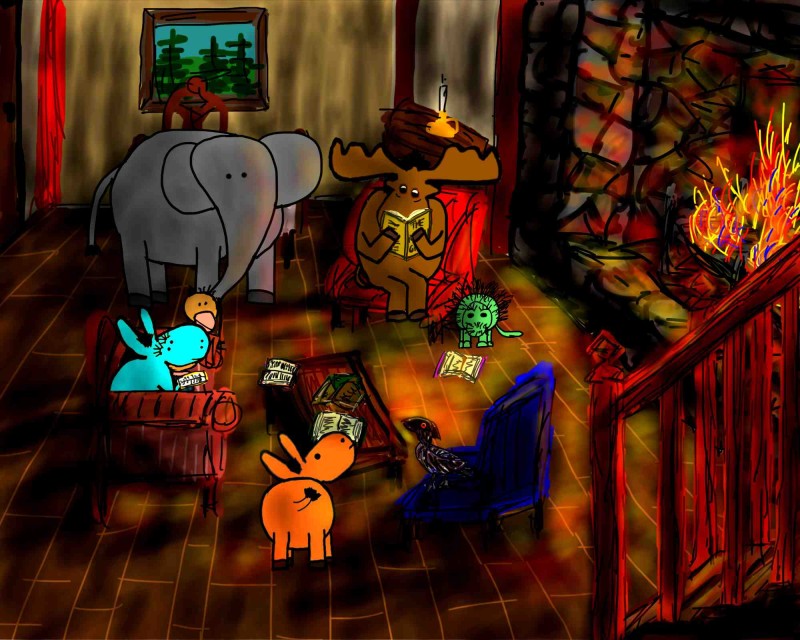Welcome to “Who 101,” said Harlan. Today’s question is “Who’s responsible?”
Responsible for what? said Morton.
I didn’t do it, said Emma Lou.
Neither did I, said Frank.
“Responsible,” said Glouster, means “being the cause or explanation; able to answer for one’s conduct and obligations; able to choose between right and wrong;” and, “marked by accountability.”
It’s not always easy to choose between right and wrong, said Chelsea.
Why not? said Frank.
Because what’s wrong for me, said Chelsea, may be right for someone else.
Like what? said Morton.
Like the color green, said Chelsea.
The color green? said Frank.
Yes, said Chelsea, the color green looks terrible on me, but it might look lovely on someone else.
Sometimes it’s also difficult, said Emma Lou, to answer for your conduct.
What conduct? said Frank.
Instinctive conduct, said Emma Lou. How can you answer for actions that are performed without thinking?
That’s true, said Morton, when I see a pumpkin pie, I can’t be held responsible for my conduct.
Or a shiny worm, said Frank.
Or a minnow, said Glouster.
Is there anything for which we can be held responsible? said Chelsea.
We can be held responsible for how we treat our friends, said Frank.
What about our enemies? said Chelsea.
Jesus, said Glouster, said we should love our enemies.
He didn’t mean cats, said Frank.
What if our enemies want to hurt us? said Chelsea.
An “enemy,” said Glouster, is “someone who is antagonistic to another, often seeking to injure, overthrow, or confound an opponent.”
You can love your enemy, said Emma Lou, without loving what they do.
Maybe you can convince them, said Chelsea, to act differently.
Yes, said Glouster, to act responsibly.
Even if that responsibility goes against their instincts? said Morton.
Maybe, said Emma Lou, responsibility can inspire us to alter our instincts so we can get along with others.
That, said Glouster, is called “social responsibility.”
“Social responsibility?” said Morton.
Yes, said Glouster, the responsibility that enables societies to exist, that enables individuals with different desires to live in harmony.
I like social responsibility, said Morton.
So do I, said Chelsea.
I don’t think cats are capable, said Frank, of social responsibility.
